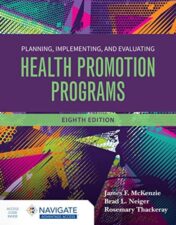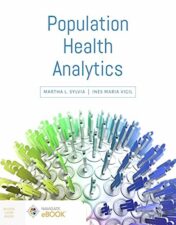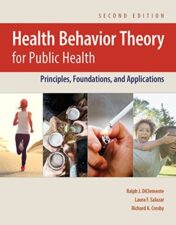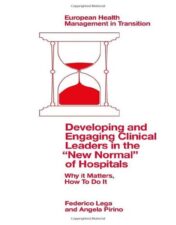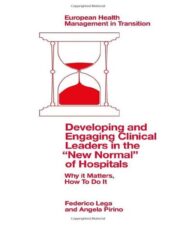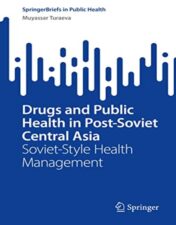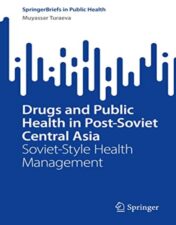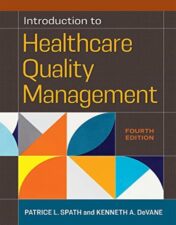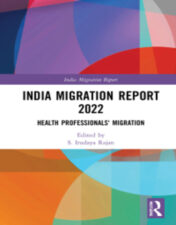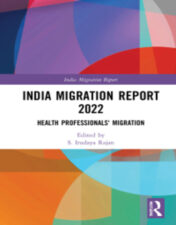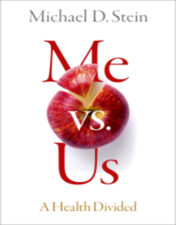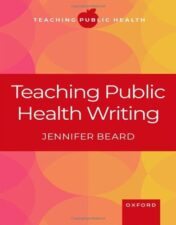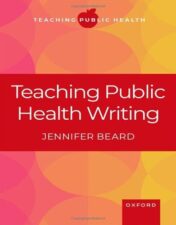Discover the Best Public Health Books Now!
Are you looking for the best public health books to help you stay informed and up-to-date on the latest developments in the field? Look no further than DentalBooks.net! Our selection of orthodontics books is comprehensive and includes titles from leading authors and publishers. Whether you’re a student, professional, or just interested in learning more about public health, we have the perfect book for you. From textbooks to reference guides, our collection has something for everyone. Plus, with our easy-to-use website, you can quickly find the book you need and have it delivered right to your door. So don’t wait any longer – explore our selection of public health books today and start learning! Click here to browse our Public Health Books
Public Health Books
Introduction to Health Behavior Theory, 4th Edition 2022 Original PDF
Public Health Books
Pursuing Health and Wellness: Healthy Societies, Healthy People 2011 High Quality Image PDF
Public Health Books
Planning, Implementing and Evaluating Health Promotion Programs, 8th Edition 2022 Original PDF
Public Health Books
Public Health Books
Public Health Books
Public Health Books
Medical Visualization and Applications of Technology (Biomedical Visualization, 1) 2022 Original PDF
Public Health Books
Righteous Rebels: AIDS Healthcare Foundation’s Crusade to Change the World 2022 Original PDF
Public Health Books
Strategic Debriefing for Advanced Simulation 2022 Original PDF
Public Health Books
Applied Machine Learning for Assisted Living 2022 Original PDF
Public Health Books
Recovering Assemblages: Unfolding Sociomaterial Relations of Drug Use and Recovery 2022 Original PDF
Public Health Books
Introduction to Healthcare Quality Management, Fourth Edition 2022 epub+converted pdf
Public Health Books
Public Health Books
Public Health Books
Public Health Books
The Spine for Lawyers: ABA Medical-Legal Guides 2014 epub+converted pdf
Public Health Books
Transcend Fear: A Blueprint for Mindful Leadership in Public Health 2021 Original PDF
Public Health Books
Routledge Handbook of Health and Media 2022 epub+converted pdf
Public Health Books
Public Health Books
Public Health Books
Public Health Books
Introduction
Are you looking to enhance your knowledge of public health? Look no further than our list of the best public health books. From comprehensive guides to specialized topics, these books provide an in-depth look at the field of public health and its many facets. Whether you're a student, professional, or just curious about the subject, these books will help you gain a better understanding of the issues facing public health today. With expert advice from leading authors, you'll be able to stay up-to-date on the latest developments and trends in the field. So, if you're ready to take your knowledge of public health to the next level, check out our list of the best public health books today!
Introduction to Public Health: A Comprehensive Overview
Introduction to Public Health: A Comprehensive Overview is an essential resource for anyone interested in learning about public health. This comprehensive overview provides a thorough introduction to the field of public health, covering topics such as epidemiology, biostatistics, environmental health, health policy and management, health promotion and disease prevention, and global health. It also includes information on the history of public health, current trends, and future directions.
The book begins with an overview of the history of public health, from its roots in ancient times to its modern-day applications. It then moves on to discuss the various components of public health, including epidemiology, biostatistics, environmental health, health policy and management, health promotion and disease prevention, and global health. Each section provides an in-depth look at the topic, including definitions, key concepts, and examples.
The book also covers the different types of public health interventions, such as immunization, screening, and surveillance. It explains how these interventions are used to improve population health and reduce health disparities. Additionally, it discusses the role of public health professionals in promoting health and preventing disease.
The book also examines the ethical considerations associated with public health interventions, such as informed consent, privacy, and confidentiality. It also looks at the challenges faced by public health professionals, such as limited resources, competing interests, and political pressures.
Finally, the book provides an overview of the current state of public health, including the impact of globalization, emerging infectious diseases, and the increasing burden of chronic diseases. It also looks at the future of public health, including potential advances in technology, new approaches to health promotion, and the need for increased collaboration between public
Epidemiology and Disease Control
Epidemiology and Disease Control is a field of public health that focuses on the study of the distribution and determinants of health-related states or events in specified populations, and the application of this study to the control of diseases and other health problems. It is an important tool for understanding the causes of disease, identifying risk factors, and developing strategies for prevention and control.
Epidemiologists use a variety of methods to collect data about the occurrence of diseases and other health conditions in populations. These methods include surveys, interviews, laboratory tests, and medical records. They also use mathematical models to analyze the data and identify patterns and trends. This information can be used to develop strategies for preventing and controlling diseases.
Epidemiologists also work with public health professionals to develop and implement programs to reduce the spread of infectious diseases. These programs may include immunization campaigns, vector control measures, and education campaigns. In addition, epidemiologists may work with policy makers to develop policies and regulations that promote public health.
Epidemiologists also play an important role in responding to outbreaks of infectious diseases. They investigate the source of the outbreak, identify risk factors, and recommend control measures. They also monitor the progress of the outbreak and provide updates to the public.
Epidemiology and Disease Control is an essential part of public health. It helps us understand the causes of disease, identify risk factors, and develop strategies for prevention and control. It also plays an important role in responding to outbreaks of infectious diseases.
Health Promotion and Disease Prevention
Health Promotion and Disease Prevention is an important part of public health. It focuses on preventing disease and promoting health through education, lifestyle changes, and other interventions. Health promotion and disease prevention activities are designed to help people make healthy choices and reduce their risk of developing chronic diseases.
Health promotion and disease prevention activities can include a variety of strategies such as providing information about healthy lifestyles, encouraging physical activity, providing access to healthy foods, and creating supportive environments for healthy behaviors. These activities can be tailored to meet the needs of different populations and communities.
Health promotion and disease prevention activities can also involve working with individuals, families, and communities to identify and address health risks. This includes identifying risk factors such as smoking, poor nutrition, lack of physical activity, and alcohol or drug use. It also involves helping people understand how these risk factors can lead to chronic diseases such as heart disease, stroke, diabetes, and cancer.
Health promotion and disease prevention activities can also involve working with healthcare providers to ensure that people receive appropriate preventive care. This includes screenings for diseases such as cancer, diabetes, and high blood pressure, as well as vaccinations against infectious diseases.
Finally, health promotion and disease prevention activities can involve advocating for policies and programs that promote health and prevent disease. This includes advocating for laws and regulations that protect people from exposure to environmental hazards, such as air pollution and lead poisoning. It also includes advocating for policies that support access to healthy foods, physical activity, and other preventive services.
Overall, health promotion and disease prevention activities are essential for improving public health and reducing the burden of chronic diseases. By educating people about healthy lifestyles, providing access to preventive services, and advocating for policies that promote health, we can create healthier communities and reduce the burden of chronic diseases.
Global Health and International Development
Global health and international development are two closely related fields that focus on improving the health and well-being of people around the world. Global health is a broad field that encompasses many different aspects of health, including public health, epidemiology, nutrition, infectious diseases, environmental health, and health policy. International development focuses on improving the economic, social, and political conditions in developing countries.
The goal of global health and international development is to reduce poverty and improve the quality of life for people in developing countries. This includes providing access to basic healthcare services, such as vaccinations, clean water, and sanitation. It also involves addressing issues such as malnutrition, HIV/AIDS, malaria, and other infectious diseases. Additionally, global health and international development seek to improve education, create jobs, and promote gender equality.
In order to achieve these goals, global health and international development organizations work with governments, non-governmental organizations (NGOs), and other stakeholders to develop and implement policies and programs that address the needs of vulnerable populations. These organizations also provide technical assistance and financial support to help countries build their capacity to deliver health services and improve their overall health systems.
Global health and international development are complex fields that require collaboration between multiple stakeholders. In order to be successful, it is important for organizations to have a clear understanding of the local context and to work closely with communities to ensure that their efforts are effective and sustainable. Additionally, it is essential for organizations to have strong partnerships with governments and other stakeholders in order to ensure that their efforts are supported and implemented.
Health Policy and Management
Health Policy and Management is a field of study that focuses on the development, implementation, and evaluation of health policies and management systems. It is an interdisciplinary field that combines elements of public health, economics, law, and political science to address the complex issues related to health care delivery and financing.
Health Policy and Management professionals are responsible for developing strategies to improve the quality of health care services, reduce costs, and ensure access to care for all individuals. They work with government agencies, private organizations, and other stakeholders to develop and implement policies that promote health and well-being. Health Policy and Management professionals also analyze data to identify trends and develop evidence-based solutions to address health disparities.
The field of Health Policy and Management includes a variety of topics such as health care reform, health insurance, health care financing, health care delivery systems, health information technology, health care quality improvement, and health care workforce development. Professionals in this field must have a strong understanding of the legal, economic, and social aspects of health care policy and management. They must be able to analyze data, develop strategies, and evaluate the effectiveness of policies and programs.
Health Policy and Management professionals play an important role in improving the health of individuals and communities. They work to ensure that everyone has access to quality health care services and that health care resources are used efficiently and effectively. By working together with other stakeholders, they can help create a healthier future for all.
Conclusion
In conclusion, public health books are a great way to enhance your knowledge and understanding of the field. From textbooks to handbooks, there is a wide range of books available to help you learn more about public health. Whether you’re looking for an introduction to the field or a comprehensive guide to the latest research, there is a book out there that can help you become an expert in public health. With the right resources, you can gain the knowledge and skills necessary to make a positive impact on the health of your community.



